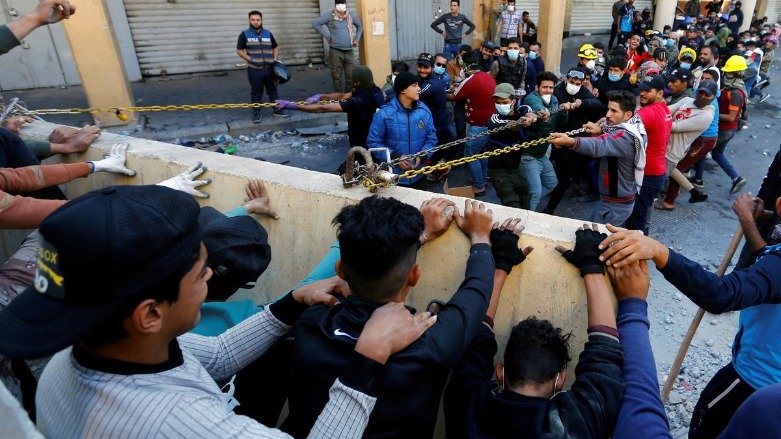Iraq's top cleric calls for passage of reform bills to end 'great crisis'

ERBIL (Kurdistan 24) – Amid Iraq's unyielding public unrest, top Shia cleric Ali al-Sistani has renewed his call on the country's political elite to pass electoral reform laws he said would pave the way for an end to the current "great crisis."
His statement came during a Friday sermon in Karbala delivered by Sistani's aide, Abdul Mahdi Karbalaie. The cleric stressed "the need to accelerate the passage of the election and electoral commission laws... because they pave the way to overcome the great crisis experienced by the country."
Close to two months into widespread anti-government protests, security forces appear to be continuing their violent crackdown that has resulted in the reported deaths of over 325 demonstrators, many because riot police have used live rounds or have fired military-grade tear gas canisters directly into crowds. Close to 16,000 people have been wounded.
On Thursday alone, security forces reportedly killed at least seven protesters and injured dozens more.
Read More: Iraqi forces kill 7 protesters, wound dozens more amid ongoing unrest
Sistani reiterated his position on the turmoil, saying protests must maintain "peacefulness" and be "free from violence and sabotage." As was the case with past protest movements in Iraq, authorities have alleged that "saboteur" elements among those taking to the streets have often steered peaceful demonstrations into escalation and eventual confrontations.
The Shia cleric, or Marjaa, as he is known in Arabic, spoke in his statement of "the sanctity of Iraqi blood, and the need for political forces to respond to the rightful demands of the protesters."
Sistani has previously argued that the current anti-corruption movement marked a turning point in Iraq's history, adding that the state would not be the same after this "battle for reform."
The revered cleric has an enormous influence over millions of Shia Muslims in Iraq. Though careful to avoid making statements that are overtly political, his comments on current Iraqi events can have a considerable impact on public opinion in the country.
Demonstrators are calling for radical change in Iraq’s political system, which they say fails to address their needs but instead serves only the interests of a small governing class, as well as foreign countries such as Iran. They decry a lack of employment opportunities, the dismal state of public services, and widespread government corruption.
Though now mostly centered in Baghdad, sporadic protests have taken place in various southern, Shi-majority provinces as well over the past week. Notable among these is oil-rich Basra, where mass demonstrations have been common in recent years, especially in the sweltering summer months when the province's chronic lack of services is felt most acutely.
The government has yet to provide a comprehensive plan to effectively address protesters' grievances and has often warned that progress would take time—comments reminiscent of previous administrations that saw similar bouts of unrest over government shortcomings.
Editing by John J. Catherine
